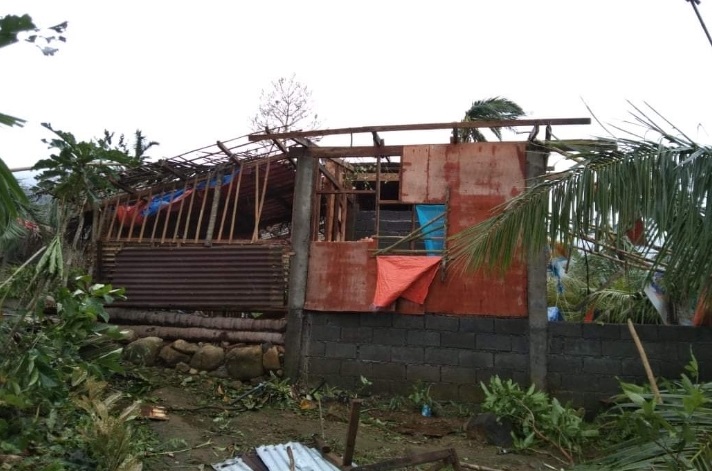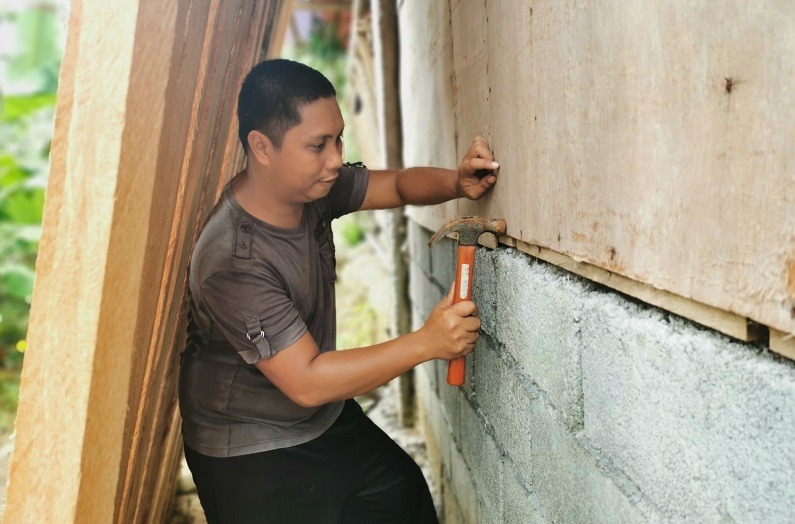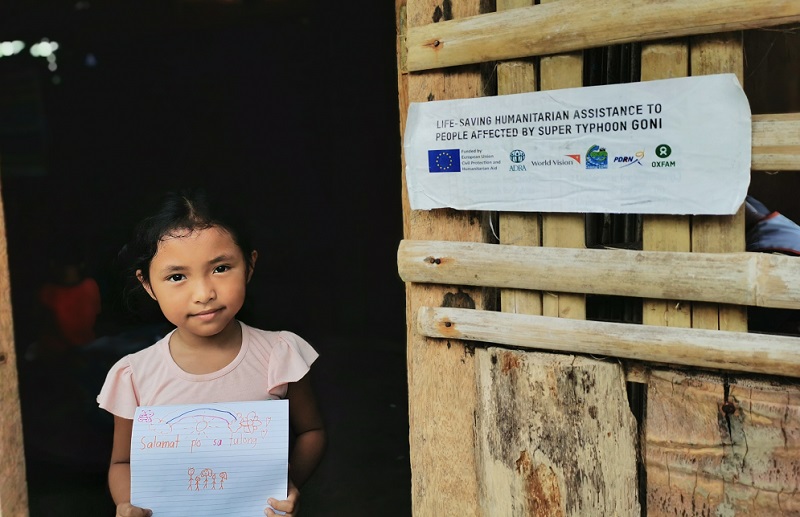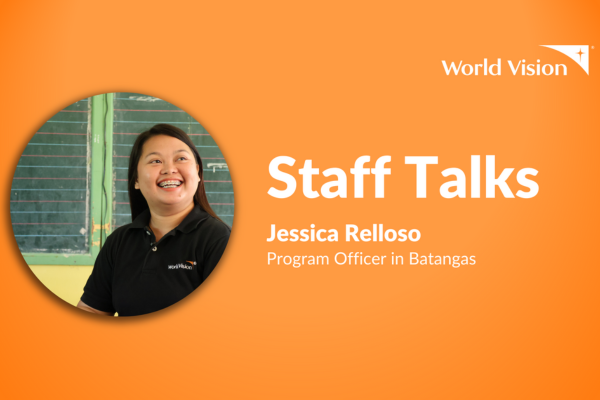Moving back home after Super Typhoon Goni

“You could pass through all sides of the house because almost all the walls were torn down. I wanted to repair it immediately, but, I had no money. I lost my job due to the pandemic,” says Felipe, a father of three from Albay. WATCH THE FULL VIDEO: https://youtu.be/YAQ9goMrUEk
Felipe is one of the thousands of Filipinos in Bicol Region who had to bear the brunt of both COVID-19 and Typhoon Goni, which hit the region in November 2020. He used to work as a construction worker in Metro Manila, but was forced to go back to his hometown in the height of the pandemic. Unfortunately, Super Typhoon Goni hit his province months after, leaving him jobless, and his family, without a house.
“We had no choice but to live with my mother- in-law. While she was very helpful to us, it’s different when you have your own house,” he says.
“I was scared during the typhoon. The roof of our house was blown away, including the walls,” shares Felipe’s eldest child, 7-year old Febby.
Shelter support

The European Union Civil Protection and Humanitarian Aid (ECHO)-funded Life-saving Humanitarian Response for Families Affected by Typhoon Goni project, implemented by World Vision, ADRA, OXFAM, PDRRN and Coastal Core in Bicol Region, was a saving grace for Felipe.
“When I learned about the shelter support, I was overjoyed. We already received hygiene kits before that so I thought that was it,” he says.
Felipe’s family is one of the 600 that were provided with shelter repair kits that include boards of marine plywood, galvanized iron sheets for roofing, carpentry tools like hammer, saw, nails and metal wire. He said the iron sheets alone would have taken him some time to buy on his own. Felipe also received P2000 cash for additional support in the repair of his house.
“They also taught us how to build sturdier houses through the Build Back Better workshop. Because I learned a lot from that, I repaired our house myself, with help from my father-in-law.”
Felipe, his wife, Marife, and their children, are now back in their home.
“This is our house now. Thanks for your help,” Febby smiles while showing their repaired house.

“There is still a lot to be done here, but I am grateful that we have our house back. My children are protected from heat and rain. They can play around. We have a room to sleep in. To everyone who helped us, thank you very much,” Felipe says.
The consortium aims to reach over 49,000 individuals until April of 2021 through multi-sectoral interventions. In Albay, where World Vision works, over 9,7000 individuals have been reached through hygiene promotion, hygiene and shelter repair kits distribution, build back better workshop and cash transfer for house repair and hosting families with totally damaged houses.








